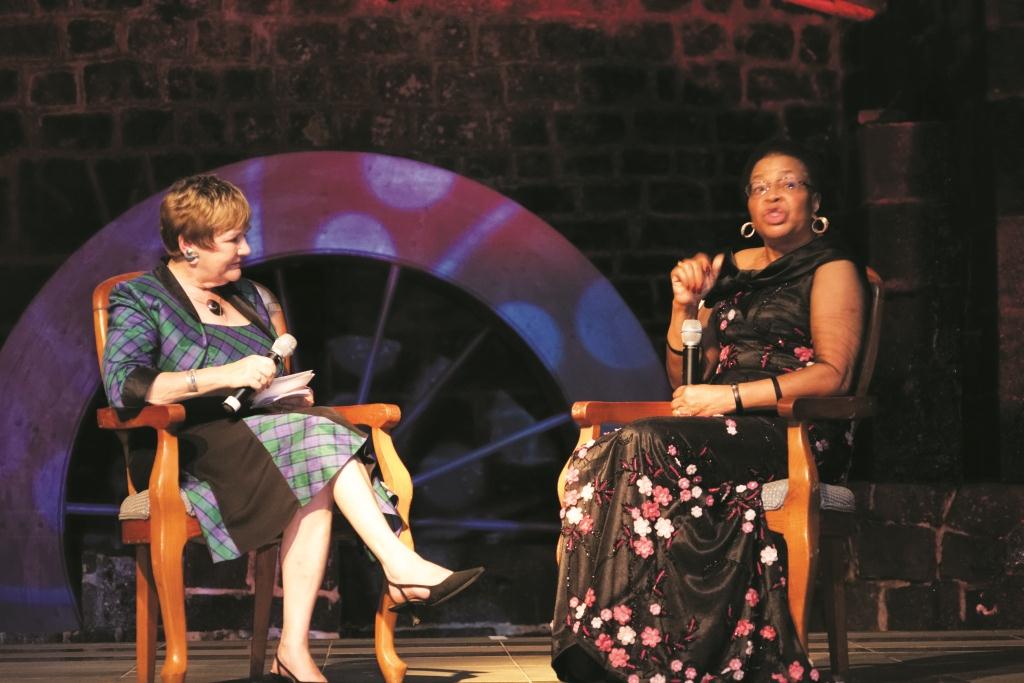She was destined to be a teacher but fate had grander plans for the young Graça Simbine. Born in 1945 in rural Mozambique, the youngest of six children, she survived the dismal conditions of Portuguese colonial rule, and rose to being one of the most influential women on the continent.
However, ambition distinguished her early on. A prodigy, Simbine consistently found herself at the top of her class at the missionary schools she attended. Her academic talent led her to become one of the first Mozambican women to win a scholarship to study at the University of Lisbon in 1968 where she focused on German Philosophy and Linguistics.
Moved by the plight of those she left behind during her time in Europe, she became increasingly politicized and began campaigning for the independence movement back in Mozambique. Courting the attention of Portuguese authorities and facing arrest, she eventually abandoned her studies to join FRELIMO [Frente de Libertação de Moçambique or the Mozambique Liberation Front], a political movement that retains substantial popular support to date. Her first posting was as teacher at a school run by the movement in Tanzania where she taught languages and served as deputy headmistress.

Respected by her peers and senior officers, as a courageous and articulate member of the movement, Simbine found herself taking on greater responsibility within the movement. On one of those assignments, stationed in Mozambique in 1973, she met Samora Machel, then commander with FRELIMO. They married a year later.
Her standing within the movement earned her an appointment as the country’s first post-independence Education Minister. She held the post for over a decade. During that time, she put in place the foundations of Mozambique’s education system. One of her achievements was pushing primary school enrolment rates from 40% to over 90% for boys and 75% for girls, an absolute increase of 1.5 million pupils nationwide. Today, she remains deeply passionate about ensuring universal access to education for every child, not only in Mozambique but across the globe.
For Machel, education is not merely a right, it is the means to a greater end; political and economic liberation.
“I believe that education is freedom, and it must provide our children with the skills they need to become who they want to be,” she said at a press conference announcing the launch of the African Leadership University (ALU) in Mauritius last month.
Machel believes education for every child is within reach and, despite resource constraints, Africa is capable of providing world-class education to its professional and leadership cadres.
As an experienced policy-maker, Machel understands the importance of strong institutions in addressing intractable social challenges. Social institutions, Machel believes, must be designed to evenly empower citizens to achieve their individual and collective conditions. The challenges within the higher education system in Africa are only symptoms of a system that needs to be rethought.
“There is something quite courageous in interrogating the kind of education we’ve been providing our young people. Our children today are learning the same things that I was taught when I was in school in the 1950s. We never took the time to reimagine our education,” she says.
Commenting on the recent turbulence in South African universities, Machel points out that it is evidence of a systemic rather than a philosophical problem.
“This is not an emotional issue, it’s an issue of economics, it’s an issue of social justice. It is not only about higher education, but all the way down to early childhood development. This is the only reasonable way to look at it. There is a danger of #FeesMustFall playing against the students themselves. There is an issue on deciding who gets the benefits of the new system. We have not yet done the math.”
Machel’s voice on the issue matters.

She has served as a Chancellor at the University of Cape Town and as President of the prestigious School of Oriental and African Studies in London. Her argument also makes sense. For an education system to fully play its social role, it must also be accessible to as many people as possible at every stage. The trick is to strike a balance.
“There are only about 100,000 [South Africans] in university today. What about the millions who need to go to secondary school, primary school or kindergarten? We haven’t navigated the mathematics of such a system. You can’t give to tertiary education without taking away from something else.”
Machel is confident transformative solutions exist and only need to be developed. She is currently focusing her energies on the newly-established ALU that is seeking to position itself as the premier leadership education institution in Africa.
“It’s important to look at the future of our continent in the eyes of the human capability that we have. Take the faces and voices of the young people who will come through these doors, we have to present them to Africa and then to the rest of the world,” she says.
ALU is built on “a resource efficient model that pioneers technology and innovative learning to provide high-quality tertiary education at scale”. The university plans to build 25 campuses that would each host 250,000 students each.
But even at those numbers, Machel argues that the university will only address a small portion of the continent’s education needs.
If the challenge today is to provide a solution at scale, Machel reflects, the long-term challenge is to develop institutions that are distinctively African, designed to solve the problems of today but constructed to stand the test of time.
